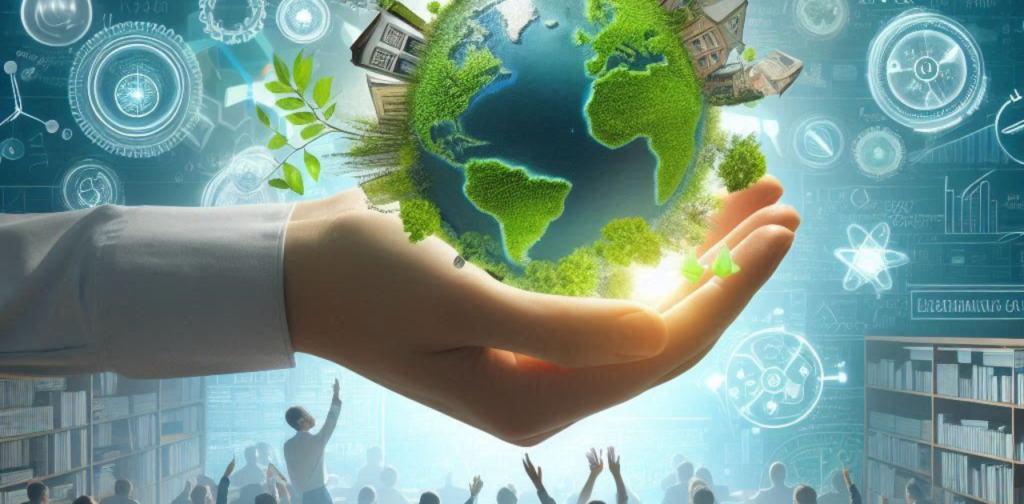Sustainability Education: Nurturing a Greener Future
Introduction
Sustainability education is a holistic approach to learning that equips individuals with the knowledge, skills, values and attitudes necessary to build a sustainable future. It encompasses environmental, social, and economic dimensions, fosters critical thinking, problem solving, and civic engagement. By integrating sustainability into the curriculum, educational institutions can empower students to become responsible global citizens and contribute to a healthier planet.
Body

Sustainability education
includes several key components:
- Environmental Literacy: Understanding ecosystems, biodiversity, climate change, and resource management.
- Economic Literacy: Understanding the economic system, sustainable consumption, and the relationship between economic growth and environmental impacts.
- Social Justice: Recognizing social inequality and promoting equity and justice in the distribution of resources.
- Global Citizenship: Developing a sense of responsibility for the planet and its inhabitants, promoting intercultural understanding.
Key principles of sustainable education include:
- Comprehensive perspective: Integrating environmental, social, and economic dimensions.
- Critical Thinking: To encourage analysis and problem solving skills.
- ** Action Orientation: ** Promoting civic engagement and practical solutions.
- Interdisciplinary approach: Connecting different subjects and disciplines.
- Lifelong learning: Promoting continuous acquisition of knowledge and skills.
Table: Key components of sustainability education
| Component | Description |
|---|---|
| Environmental Literacy | Understanding ecosystems, biodiversity, and climate change |
| Economic Literacy | Understanding economic systems, resource management, and sustainable consumption |
| Social justice Recognizing social inequality and promoting equality | |
| Global Citizenship | To develop a sense of responsibility for the planet and its inhabitants |
| Action Orientation | Engaging in community projects and taking personal action |

Result
Sustainable education is essential to create a sustainable future. By promoting environmental awareness, economic literacy, and social justice, it empowers individuals to actively participate in building a healthier planet and a more equitable society.
Frequently Asked Questions

- What is the difference between sustainability education and environmental education?
- While environmental education focuses primarily on the natural world, sustainability education encompasses a wider scope, including social and economic dimensions.
- How can sustainability education be integrated into the curriculum?
- Sustainability can be incorporated into a variety of subjects, such as science, social studies, math, and language arts.
- What are the challenges of implementing sustainable education?
- Challenges include lack of teacher training, limited resources and resistance to change.
- How can individuals contribute to sustainability education?
- Individuals can advocate for sustainability education, volunteer in environmental organizations, and educate their communities.
- What is the role of technology in sustainable education?
- Technology can provide access to information, facilitate collaboration, and support data-driven decision-making.
Sustainability education
is a dynamic field that has the potential to change the way we think, learn and live. By fostering a deeper understanding of our interconnected world, it empowers individuals to become agents of change and build a more sustainable future.
Would you like to focus on a specific aspect of sustainability education, such as sustainability in higher education, K-12 sustainability education, or sustainability assessment?